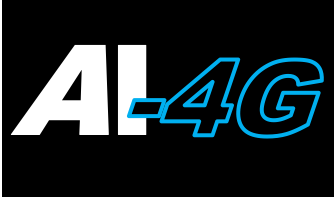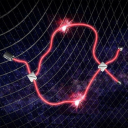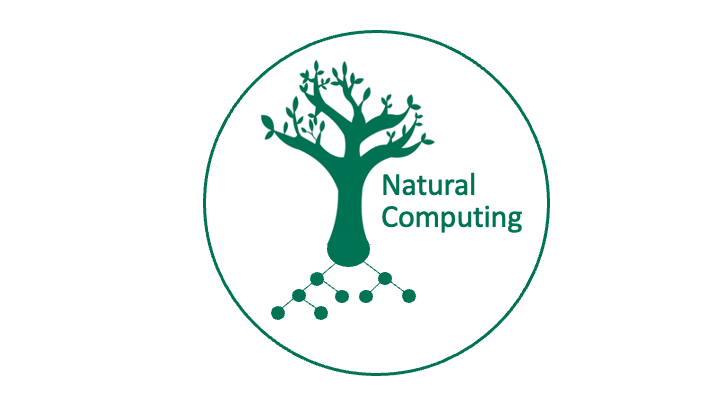This course is only for the organization of the second exam of Methods in Software Engineering, which was otherwise using [Uni2Work](https://uni2work.ifi.lmu.de/course/S23/IfI/MSE). If you are registered on Uni2Work, you have received the registration password via mail.
- Учитель: Philipp Wendler
Im Rahmen dieses Praktikums sollen in Gruppen Experimente bzw. Untersuchungen aus dem Forschungsgebiet des Affective Computing durchgeführt werden. Dabei werden zunächst geeignete Experimente entworfen, in denen Testpersonen in bestimmte affektive bzw. emotionale Zustände versetzt und gleichzeitig relevante (Sensor-)Daten aufgezeichnet werden können. Anschließend werden die Experimente durchgeführt und die aufgezeichneten Daten mit Hilfe von Methoden aus den Gebieten Data Science und Machine Learning analysiert. Insofern erfolgreich Muster identifiziert werden können, soll zum Abschluss ein kleiner Demonstrator umgesetzt werden.
Dieses Praktikum wird in Zusammenarbeit mit Dr. Marco Maier https://www.marcotm.com als Lehrbeauftragtem an der LMU München durchgeführt. Dr. Marco Maier hat an der LMU am Institut für Informatik promoviert und ist aktuell CTO bei TAWNY (www.tawny.ai), einem der spannendsten Affective-Computing-Startups in Europa. Studenten erhalten in diesem Praktikum wertvolle Einblicke sowohl in das Forschungsgebiet als auch in den neuesten Stand der Technik in der Industrie.
Voraussetzungen: Kenntnisse bzw. mindestens ausgeprägtes Interesse an den Themen Artificial Intelligence, Machine Learning, etc.; Progammierkenntnise in Python vorteilhaft
- Учитель: Philipp Altmann
- Учитель: Marco Maier
Inhalt der Veranstaltung
In dieser Arbeitsgemeinschaft (AG) werden anspruchsvolle Themen des Quantum Computing in enger Zusammenarbeit mit ausgewählten Studenten behandelt.In den Sitzungen der AG präsentieren und diskutieren wissenschaftliche Mitarbeiter des Lehrstuhls ihren aktuellen Forschungsstand (Progress Report) und wichtige Veröffentlichungen (Journal Club) im Bereich des Quantum Computing.
Im Rahmen dieser AG werden u.a. auch Projekt- und Abschlussarbeitsthemen vergeben.
Einschreibungsschlüssel und weitere Informationen, siehe:https://www.mobile.ifi.lmu.de/lehrveranstaltungen/arbeitsgemeinschaft-quantum-computing-sose23/
- Учитель: Thomas Gabor
- Учитель: Maximilian Mansky
- Учитель: Christoph Roch
Computer Games and Games related formats are an essential branch of the
media industry, with sales exceeding those of the music or the movie
industry. In many games, it is necessary to build up a dynamic
environment with autonomously acting entities. This comprises any types
of mobile objects, non-player characters, computer opponents or the
dynamics of the environment itself. To model these elements, techniques
from the area of Artificial Intelligence allow for modelling adaptive
environments with interesting dynamics. From the point of view of AI
Research, games currently provide multiple environments which allow the development of breakthrough technology in Artificial Intelligence and Deep
Learning. Projects like OpenAIGym, AlphaGo, OpenAI5 and Alpha-Star earned
a lot of attention in the AI research community and the broad
public. The reason for the importance of games for developing
autonomous systems is that games provide environments that usually allow
fast throughputs and provide clearly defined tasks for a learning agent
to accomplish. The lecture provides an overview of techniques for
building environment engines and making these suitable for large-scale, high-throughput games and simulations.
Furthermore, we will
discuss the foundations of modelling agent behaviour and how to evaluate
it in deterministic and non-deterministic settings. Based on this formalism, we will discuss how to analyse and predict agent or player
behaviour. Finally, we will introduce various techniques for optimizing
agent behaviour, such as sequential planning and reinforcement learning.
Enrollment Key: ReadyPlayer1

- Учитель: Zongyue Li
- Учитель: Matthias Schubert
- Учитель: Niklas Strauß
- Учитель: Philipp Altmann
- Учитель: Jonas Nüßlein
- Учитель: Thomy Phan
- Учитель: Fabian Ritz
Course description following soon
Self enrollment key: ImageRecognition
- Lecture Date/Location: Wednesdays, 10:15 – 11:45 / Theresienstr. 39, Room B 139
- Excercises Date/Location: Fridays, 10:15 – 11:45 / Geschwister-Scholl-Pl. 1, Main Building, Room M 114
If course is booked out, you can join a waiting list by sending an application (motivation letter + course related skills) to this mailaddress: assist.mvl@lrz.uni-muenchen.de
- Учитель: Kolja Bauer
- Учитель: Ursula Fantauzzo
- Учитель: Olga Grebenkova
- Учитель: Ming Gui
- Учитель: Dmytro Kotovenko
- Учитель: Pingchuan Ma
- Учитель: Kaan Oktay
- Учитель: Björn Ommer
- Учитель: Johannes Schusterbauer
- Учитель: Kim-Louis Simmoteit
Vorlesung: Freitag, 14-17 Uhr
Oettingenstr. 67 - B U101
Die erste Vorlesung findet am 21. April 2023 statt.
Übung: Freitag, 10-12 Uhr
Oettingenstr. 67 - B U101
Die erste Übung findet am 28. April 2023 statt.
Der Einschreibeschlüssel ist: FunWithQuantum=)
Bitte schreiben Sie sich bis Freitag, den 28.04.2023, 12:00 Uhr, ein, wenn Sie an der Vorlesung teilnehmen möchten. Sie müssen sich NICHT im LSF oder in uni2work registrieren.

- Учитель: Anna Fischhaber
- Учитель: Tobias Guggemos
- Учитель: Florian Krötz
- Учитель: Korbinian Staudacher
- Учитель: Xiao-Ting To
- Учитель: Volker Tresp
- Учитель: Gengyuan Zhang
- Учитель: Yao Zhang
- Учитель: Armin Hadziahmetovic
- Учитель: Markus Joppich
- Учитель: Samuel Klein
- Учитель: Felix Offensperger
- Учитель: Ralf Zimmer
- Учитель: Armin Hadziahmetovic
- Учитель: Samuel Klein
- Учитель: Felix Offensperger
- Учитель: Ralf Zimmer
Das Feld des Natural Computing betrachtet Algorithmen und Methoden, die von Phänomenen der Natur übernommen oder inspiriert sind. Diese Veranstaltung behandelt dabei u.A. evolutionäre Algorithmen und weitere Optimierungsverfahren, Ameisenalgorithmen, zelluläre Automaten, artificial chemistry systems, quantum computing und neuronale Netze, deren Konzepte jeweils aus der Biologie, Chemie oder Physik abgeleitet sind.
Das System verlangt einen self-enrolment key. Dieser ist: naco

- Учитель: Thomas Gabor
- Учитель: Maximilian Zorn
- Учитель: Elisabeth Mayer
- Учитель: Thomas Odaker
| Schedule | Location | Instructor | |
|---|---|---|---|
| Lecture | Tuesday, 16 - 18 c.t. | M014, HGB | Prof. Dr. Eyke Hüllermeier |
| Exercise A | Thursday, 16 - 18 c.t. | M110, HGB | Yusuf Sale |
| Exercise B | Friday, 14 - 16 c.t. | M110, HGB | Yusuf Sale |
In case of questions, please contact yusuf.sale@ifi.lmu.de
- Учитель: Eyke Hüllermeier
- Учитель: Yusuf Sale
- Учитель: Michael Kölle
- Учитель: Jonas Nüßlein
- Учитель: Karl Fürlinger
- Учитель: Pascal Jungblut
- Учитель: Steffen Illium
- Учитель: Maximilian Mansky
- Учитель: Maximilian Zorn
- Учитель: Marie-Christine Jakobs
- Учитель: Stefan Winter
- Учитель: Markus Joppich
- Учитель: Samuel Klein
- Учитель: Ralf Zimmer